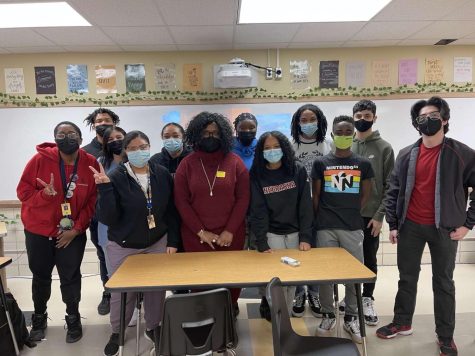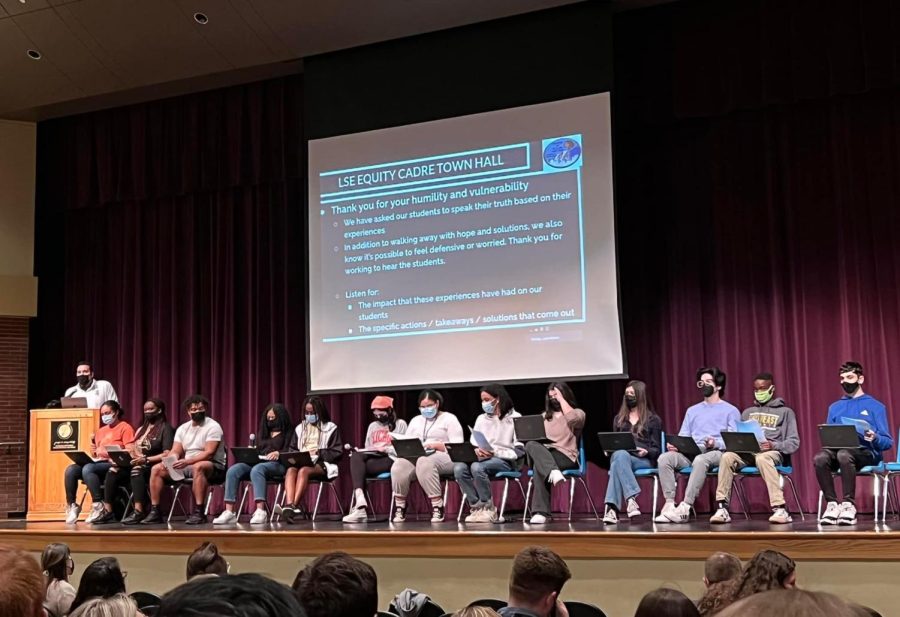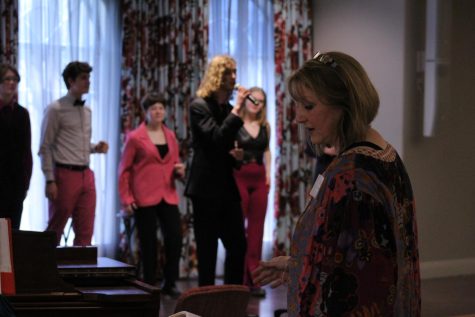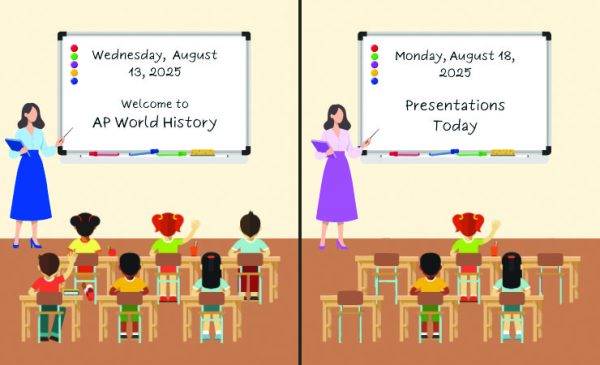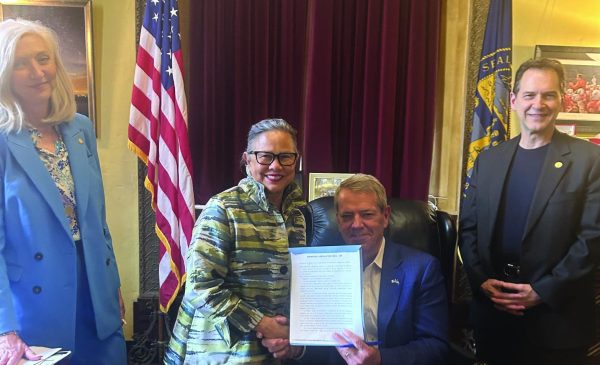LSE’s Equity Cadre answers questions from staff at the first-ever Town Hall Meeting
LSE Equity Cadre members sit on the stage in the theater on Feb. 15, 2022. The students addressed the LSE staff and answered questions pertaining to equity in Southeast High School.
On Feb. 15, 2022, Lincoln Southeast High School’s (LSE) Equity Cadre held their first-ever town hall meeting with LSE teachers, counselors, and administrators. Although there was a meeting held last year at LSE with the Lincoln Public Schools (LPS) superintendent Dr. Steve Joel and students from around the district, this town hall was the first of its kind.
LSE’s Equity Cadre is a group of multiracial students who discuss and address the issues in the school environment and work together to create a more equitable school. LSE junior Layla Riley is the club’s president.
Although action for change is a top priority, Riley said that the goal of the town hall is to raise awareness.
“Going into town hall, I didn’t expect it to change anything. However, I did expect it to open some eyes and ears. I wanted our stories and our advice to allow for the audience to get a glimpse into the minds of [Equity Cadre],” Riley said. “I believe that each of the people who spoke had a different expectation of what was going to result from this town hall, but I personally wanted them to just listen. Change requires time and effort, and we have just started the long process of creating change.”
Riley believes that the flip in roles during the meeting let the members truly express what they wanted to discuss and bring to the surface.
“Instead of students asking those of authority questions, they asked us questions and [Equity Cadre] responded,” Riley said. “We came up with this idea at the beginning of the school year when we were trying to figure out what would make the most impact on the school.”
One of the goals that Equity Cadre has wished to accomplish from the beginning of the 2021-2022 school year is the power of change through education. The mission statement that the club fulfills shares that in order for any progression to occur, there must be the power of education in the equation.
“As a cadre, our mission is to advocate for all students in LPS by building an inclusive environment through educating and prioritizing equity and progress,” Riley said. “I believe that there cannot be change without education.”
With the cadre’s statement in mind, Riley believes that there were more prominent things discussed throughout the duration of the meeting that followed alongside their goals.
“We had three main categories that we focused on: rigor, culture/classroom environment, and instruction,” Riley said.
As the members and staff shared their thoughts and experiences, Riley found herself surprised with the responses from both sides even after the meeting had occurred. She felt the personalization from the points that other cadre members brought up as well as the ambition of the audience to come together and progress to a route of equality.
“Many of the personal stories shared by the other members are what stuck out to me the most; I sometimes forget that everyone has their own experiences that pushes them to create their own ideas and interpretations on certain situations,” Riley said. “I was also pleasantly surprised by the reaction from teachers that came on the following days. Many teachers thanked us, wrote us letters, and sought us out in the halls to tell us how appreciative they were; and I think that really reinforced the idea that our teachers want to be apart of the change.”
Overall, Riley believes that the town hall meeting allowed for them to talk to the LSE staff in a real and personal, yet professional way. The correlation between the responses given and the questions asked showed the willingness that the LSE community has to take action for a harmonious student body.
“I think the overall delivery of personal anecdotes were placed perfectly in correspondence with the questions,” Riley said.
Though there was a group desire to change how things are currently, Riley wants the change to stay in effect even after an extended period of time has passed.
“I definitely feel like it was a positive experience, but I don’t want it to be one of those things that begins to create change and then dies out,” Riley said. “I started thinking about how change would happen when there weren’t a group of students who consistently brought up the fact that change needed to occur.”
The town hall meeting was a first step in bringing awareness to the LSE community about the student life environment that might not be noticed due to the prominence of academics. Riley hopes that meetings like these will continue to be pursued.
“While I definitely hope for more meetings, I have no clue what the rest of this year and/or what next year will look like,” Riley said. “We have talked about next steps, but it’s really a matter of what we see change and what we believe should happen next to insure bettering our school.”
